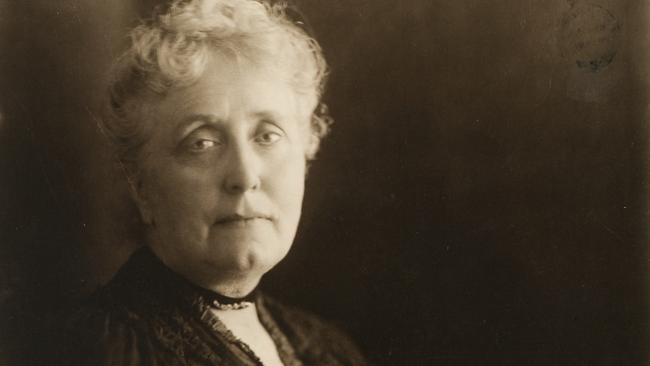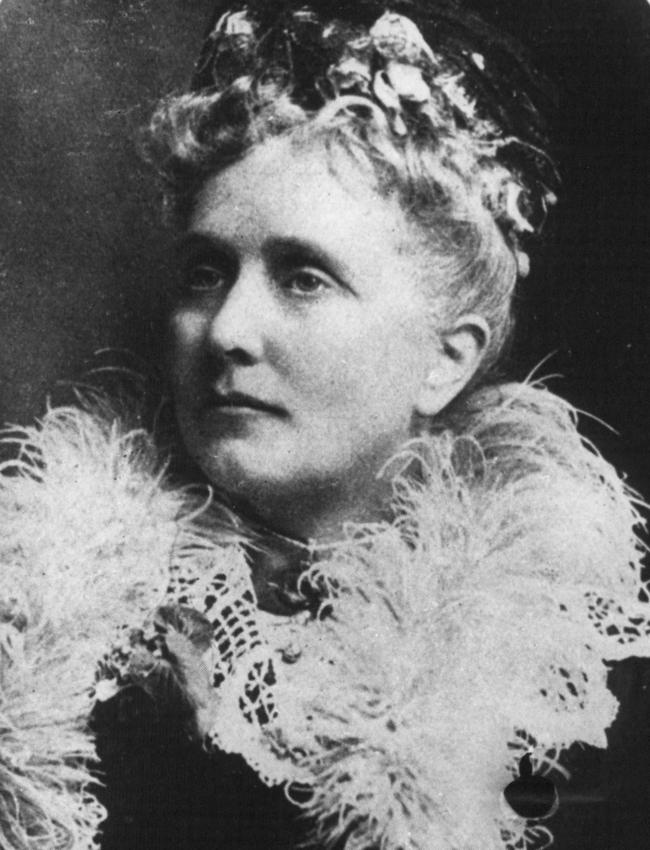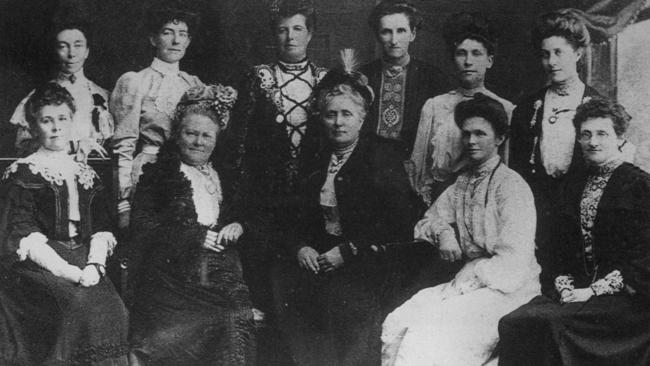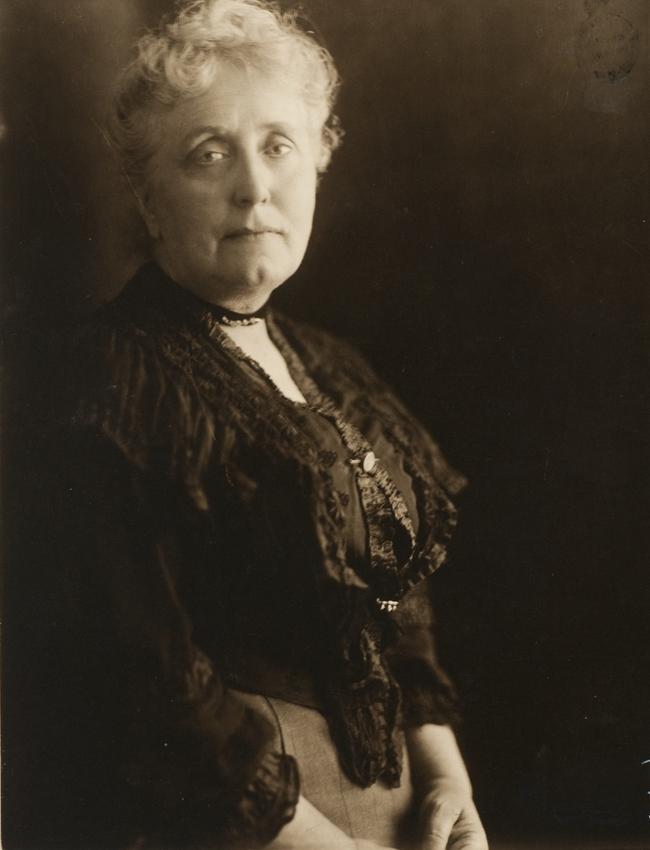Socialite Rose Scott’s voice of dissent won rights for Australian women
After almost 30 years of agitating first for women to vote, then to raise the age of sexual consent for girls, Rose Scott championed one compliment above all.

Today in History
Don't miss out on the headlines from Today in History. Followed categories will be added to My News.
AFTER almost 30 years of agitating first for women to vote, then to raise the age of sexual consent for girls, Rose Scott championed one compliment above all.
“I think the greatest compliment ever paid to me was when I was told that I said the nastiest things of men, in the nicest way,” she said in 1915.
Born 170 years ago tomorrow, on October 8, 1847, at Glendon, near Singleton in the Hunter Valley to Indian-born pastoralist Helenus Scott and his wife Sarah, an accomplished linguist and scholar, Scott spent much of her life on social justice campaigns. Her efforts helped pass the Women’s Suffrage Act in 1902, making women in Australia the first in the world with the right to vote and the ability to hold office at the federal level. Then in 1910 after Scott, among others, had spent almost 20 years campaigning across the state, the Girls Protection Act raised their age of consent from 14 to 16.
Scott was among leaders of the first deputation to NSW Parliament to request raising the age of consent in 1892. A deputation of women in 1896 proposed lifting consent to 18 years, pointing out that a girl of 14 was not allowed to dispose of property, even a watch or a horse, “nor of her own will to give her hand in marriage”. Doctors and clergy in 1898 told parliament an average of 500 girls under 18 gave birth to an illegitimate child each year, and 40 per cent of children born to mothers under 20 were illegitimate.

But in 1896, a Sydney newspaper argued the no case that had frustrated efforts to legally raise consent age. Agreeing arguments in favour of lifting the age were probably correct, and that women had asked for age 18, hoping to achieve 16, the editorial asked about protecting boys.
“There are impressionable youths who are as easily led astray as the impressionable girls, and in view of the terrible punishment awarded on account of crimes against females, and the easy opportunity for blackmail that would be afforded unscrupulous persons, the public will no doubt consider long and seriously before they place in the power of any hysterical or unscrupulous female of 16 or 17 the means of working such widespread mischief. With the age of consent at 18 many young men might be forced into marriages or fleeced by immoral girls or their designing parents. There are grave dangers associated with raising of the age.”
As Prisoners Aid Association president, in 1906 Scott joined Ashfield Infants Home president Fanny Dickson and others to again petition for early passage of the age of consent bill in the Legislative Assembly.

Scott’s father had died in 1879, leaving her an annual income of £500 and responsibility to continue to care for her crippled and ill mother, who died in 1896. From 1879 they lived at Lynton, on Jersey Rd, Woollahra, where Scott also cared for her nephew Helenus, then two, son of her deceased sister Augusta. She began a regular Friday evening salon, inviting politicians, philanthropists, lawyers and writers such as Miles Franklin, Banjo Paterson, Louisa Lawson and Vida Goldstein. She also invited working women and girls, who helped draft the 1899 Early Closing Act in her sitting room at Sunday evening meetings with politicians.
As Womanhood Suffrage League secretary from 1891, Scott travelled the state to agitate for women’s voting rights, asking “Can it be good for the boy of 21 to feel that he has a voice in the Government of the country and his mother has none?” Scott argued that if women wanted “to do battle with the demon drink, if she wants to put better wages in the hands of the toiling mothers of families, let her ask for the vote. Fellow Women … it is our duty to obtain the vote to help all women — yes and men also — who earn their living who suffer thro’ unjust laws or dwell in misery and degradation.”

She reported on female prisoners at Darlinghurst Gaol in 1898, where male guards conducted routine strip-searches, and women’s work consisted “solely of scrubbing, cleaning, washing and needlework of the most hideous and dreary description”. Women also could not use the prison schoolroom or library for education offered to men. Scott’s efforts helped initiate a women’s prison at Long Bay from 1909.
Scott was especially passionate about sexual exploitation, and in 1903 took on the case of accused murderer Ethel Herringe, who in November 1902 shot her lover and employer Maurice Lee, licensee of Cowra’s Clubhouse Hotel. Herringe, 22, was pregnant to Lee, then 20, who she said had promised to marry her, but then procrastinated.
After buying a pistol, Herringe arranged for a pastor to come to the hotel to perform a marriage. When Lee refused to marry her, Herringe shot him, and he died days later. Angered that Herringe had to give birth to twins in Darlinghurst Gaol, and have them taken away, Scott said the shooting was Herringe’s attempt to retrieve her honour in a situation lacking effective legal redress.
Scott was an active campaigner until shortly before her death in 1925.
Originally published as Socialite Rose Scott’s voice of dissent won rights for Australian women


